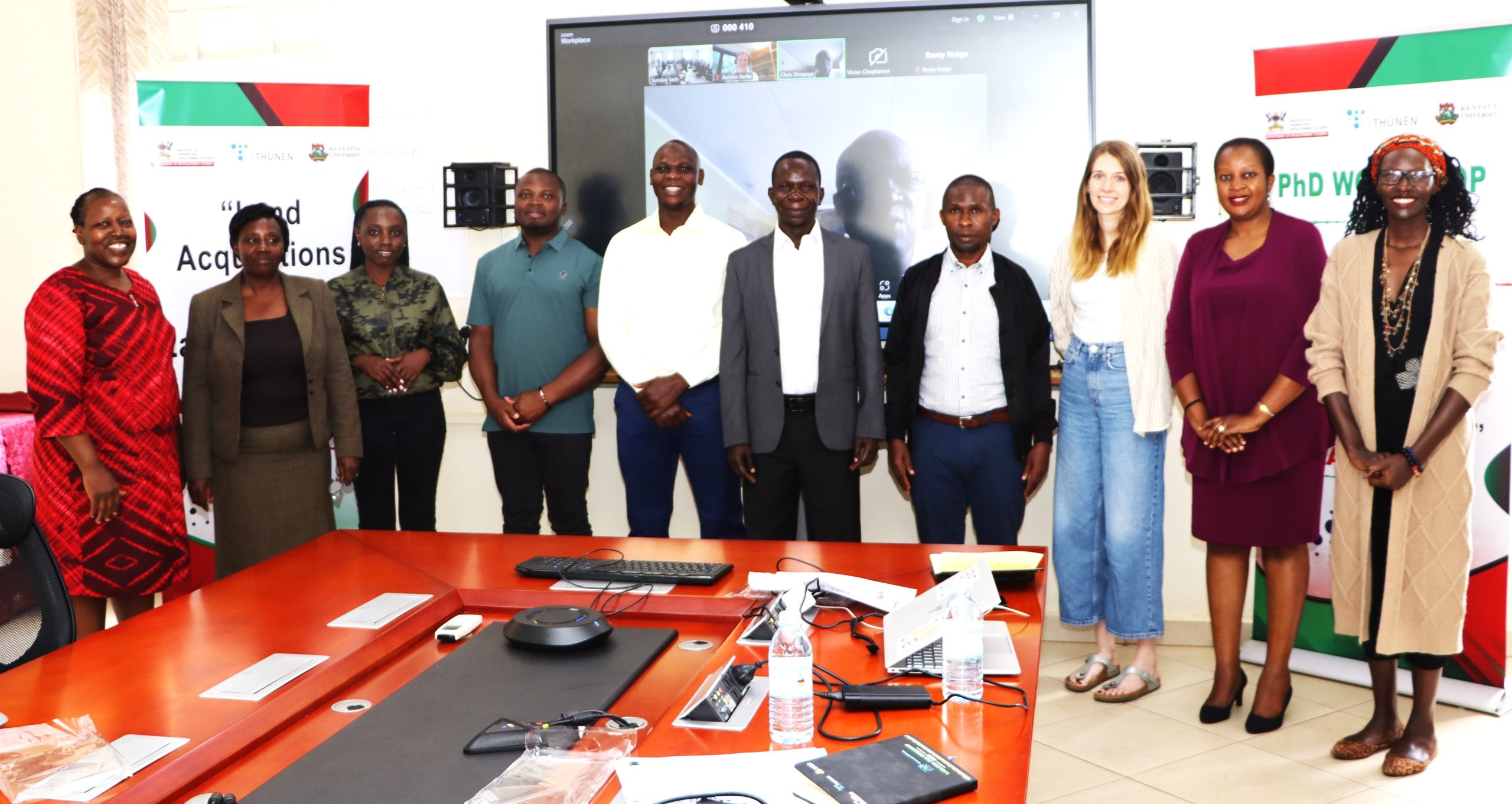Scholars from Uganda, Kenya, and Germany converge to examine land acquisition, wealth accumulation, and inequality under the LARLIREA Project
Makerere University on Tuesday, October 14, 2025, officially opened a three-day PhD workshop under the Land Acquisitions and Land Raising Inequalities in Rural East Africa (LARLIREA) Project.
The blended workshop, held at the School of Social Sciences Smart Room, brought together research teams from Makerere University, Kenyatta University, and Germany’s Thünen Institute to harmonize fieldwork methodologies and deepen understanding of land inequality and wealth accumulation in the region.
Launched in September 2023, the Land Acquisitions and Rising Land Inequalities in Rural East Africa (LARLIREA)Project is a collaborative research initiative funded by the Volkswagen Foundation. The project is jointly implemented by Makerere University, Kenyatta University, and Germany’s Thünen Institute, with the goal of generating evidence to guide equitable land governance in the region.
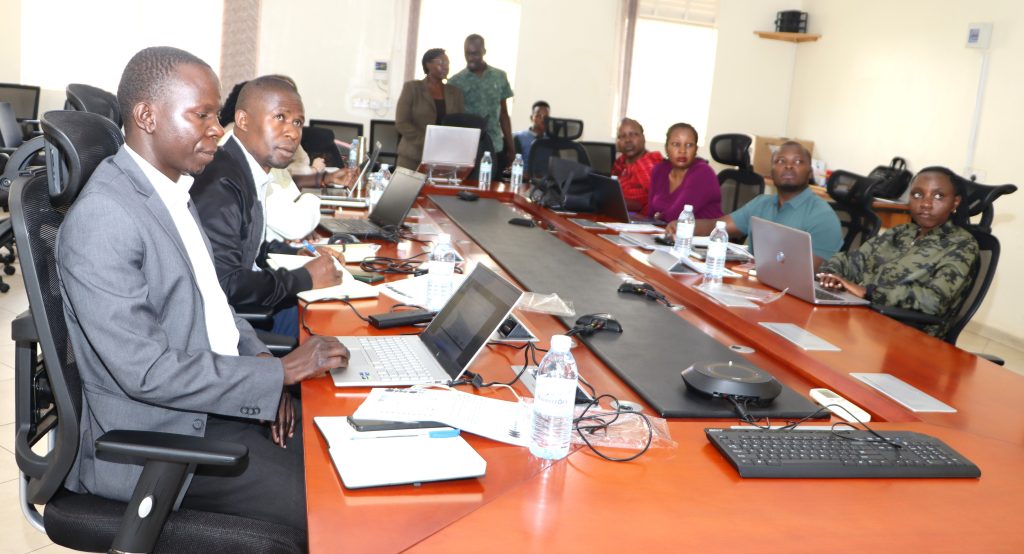
LARLIREA seeks to understand how large-scale land acquisitions are shaping patterns of wealth and inequality in rural East Africa. It explores the impact of these land deals on local communities, focusing on livelihoods, food security, and social well-being. By investigating the growing interest of external actors in rural land, the project aims to fill existing knowledge gaps and promote policies that safeguard the interests of vulnerable populations.
In addition to its research objectives, the project emphasizes capacity building for emerging African scholars and encourages evidence-based policy dialogue to support inclusive and sustainable land management across East Africa.
Land Now Divides Instead of Uniting
While officially opening the workshop of behalf of the Director of the Institute of Gender and Development Studies, Assoc. Prof. Ruth Nsibirano commended the LARLIREA team for sustaining collaboration since the project’s inception in 2023. She urged the scholars to generate research that directly informs policy on equitable land governance.
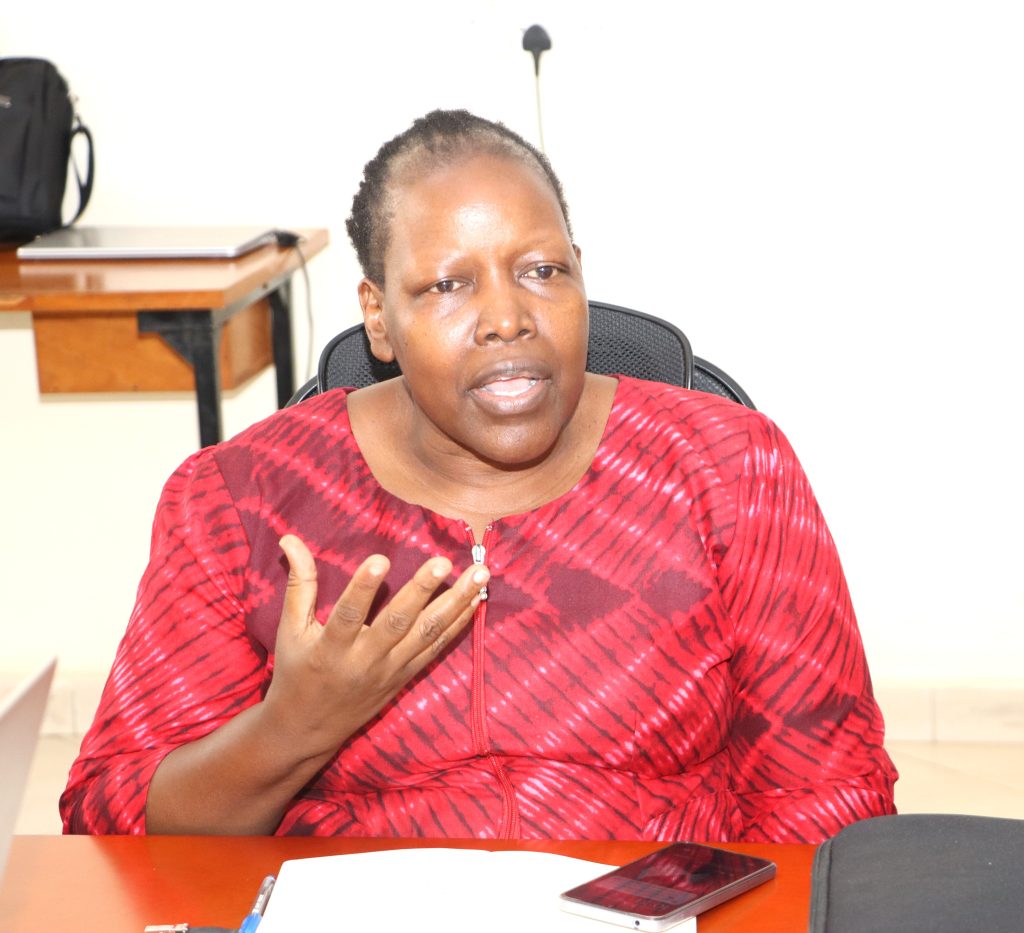
“Land has become a critical resource in our midst,” she said. “In the past, Africans lived communally, sharing land for the common good. But commercialization and privatization have made it a source of division rather than unity.”
Prof. Nsibirano observed that inequality in land ownership is deeply entrenched, with gender and age being major determinants of exclusion.
“Men inherit land through cultural structures that privilege them, while women are often denied land in both their birth and marital homes,” she explained. “This leaves many women and youth without access to productive land, perpetuating inequality.”
She called on the project’s postgraduate fellows to amplify the voices of marginalized communities affected by displacement and land commercialization.
“Your research should capture people’s lived experiences — who benefits, who loses, and why,” she said. “We need these voices to guide strategies for inclusive and sustainable land use.”
Prof. Nsibirano also emphasized methodological integrity, urging students to personally collect field data to ensure authenticity.
“When you go to the field, do as much as you can yourself,” she advised. “Research assistants may not capture nuances the way you can as the principal researcher.”
She encouraged participants to produce academic manuscripts alongside their theses to strengthen the project’s scholarly impact and their own publication track records.
“This project gives you a head start in your publishing journey,” she noted. “It will help build your capacity and ensure that the knowledge you generate influences both academia and policy.”
Workshop to Build Common Understanding and Scholarly Collaboration
Makerere University’s Principal Investigator, Dr. Resty Naiga, from the Institute of Gender and Development Studies, welcomed participants and outlined the workshop’s objectives, emphasizing the need for coherence across the project’s multinational and interdisciplinary teams.
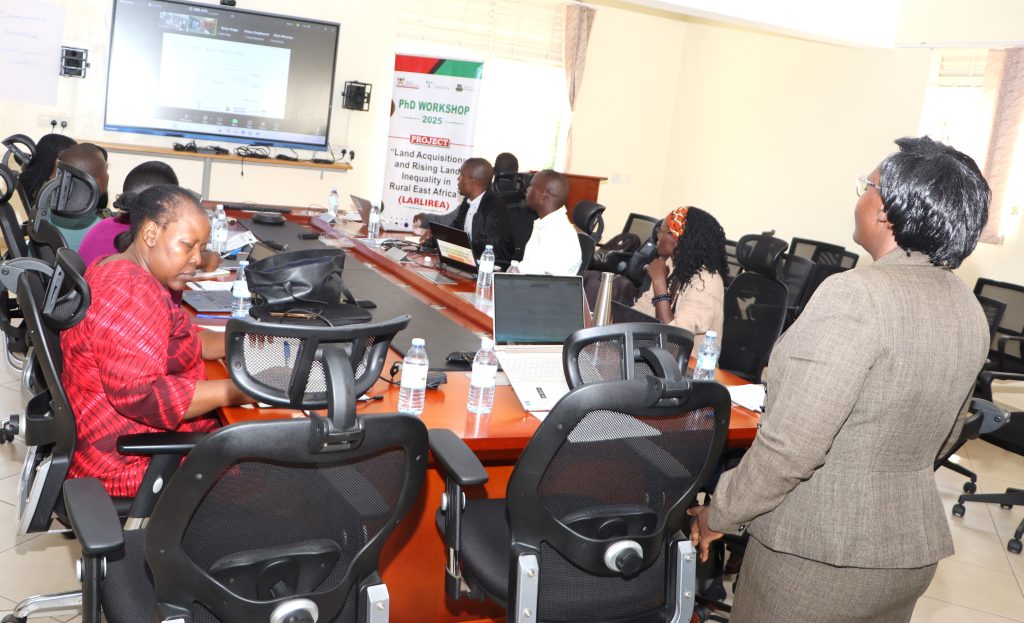
“We have teams from Germany, Kenya, and Uganda — including PhD students and master’s students,” she said. “The goal of this workshop is to build team spirit and a common understanding of our key concepts, procedures for collecting and managing data, and the ethical guidelines that will guide our fieldwork.”
Dr. Naiga noted that the workshop would strengthen research rigor and output by aligning qualitative and quantitative methods, as well as promoting co-authorship among team members.
“We intend to use this opportunity to develop scholarly writing outputs such as manuscripts, book chapters, journal articles, blogs, and policy briefs,” she said. “By the end of this workshop, we expect to have a clear framework and timeline for each of these outputs.”
She also highlighted the importance of validating research questions with stakeholders, citing the participation of Dr. Doreen Kobusingye, a leading land governance scholar.
“Dr. Kobusingye’s experience in post-conflict land research will help us sharpen our conceptual understanding of land inequality and wealth accumulation in Uganda and beyond,” Dr. Naiga added.
She expressed confidence that by the end of the workshop, the participating PhD and master’s students would have established strong academic tandems and cross-institutional collaboration.
Combining Quantitative and Qualitative Insights to Understand Inequality
Speaking online from Germany’s Thünen Institute, Dr. Kerstin Nolte presented an overview of the LARLIREA project structure and research design. She explained that the project integrates multiple research traditions to comprehensively analyze how land acquisition and investment decisions shape inequality and wealth formation.
“Our research questions look at how land inequality evolves over time, and how perceptions of inequality influence investment decisions,” she said. “We combine quantitative methods — such as survey and administrative data analysis — with qualitative approaches that explore local perceptions and case studies.”
Dr. Nolte said the project is organized into four work packages:-National-level analysis using existing datasets to track land inequality trends; the Regional-level studies focusing on case studies and wealth formation; the Local-level research capturing perceptions of inequality; and Synthesis activities bringing together all findings to create a comprehensive regional picture.
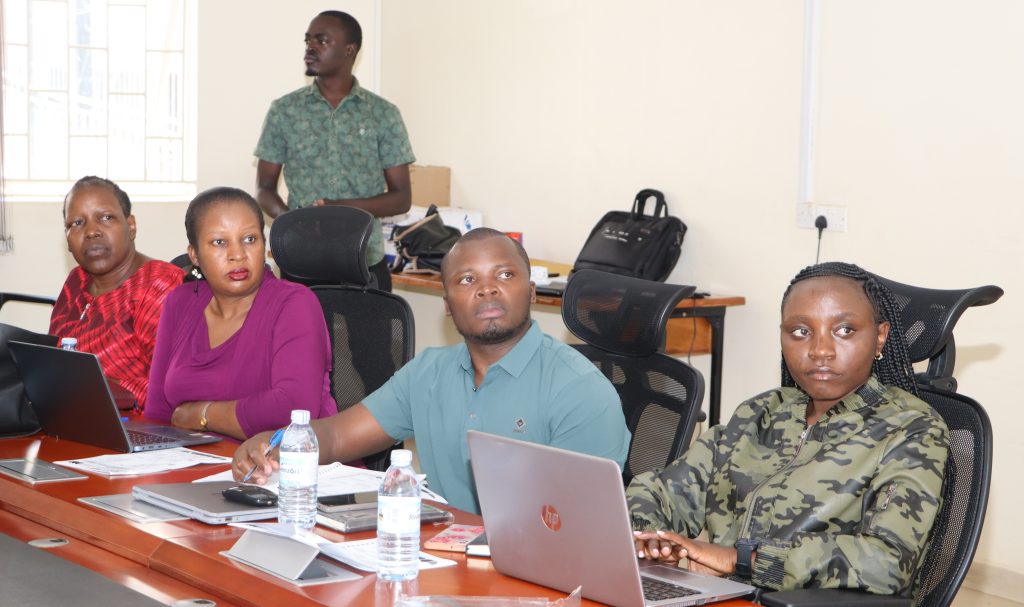
“Thünen Institute hosts the national-level work, while Kenyatta and Makerere universities lead the field research and case studies,” she noted. “The synthesis package ensures that all these strands come together meaningfully.”
She emphasized that capacity building and co-learning are at the heart of the project.
“We value collaboration across disciplines and countries,” Dr. Nolte said. “Our workshops, village meetings, and participatory engagements with non-academic partners are essential for producing grounded, applicable research.”
She also highlighted institutional support across all partner universities, noting that strong administrative and academic backing has enabled the project to thrive since 2023.
“This collaboration between European and African institutions is a model for equitable knowledge exchange,” she concluded.
Linking Research to Policy and Sustainable Land Governance
Representing Kenyatta University, Dr. Raphael Kweyu elaborated on the project’s theory of change and milestones. He explained that the research seeks to understand how land acquisitions intersect with governance systems, regulatory frameworks, and inequality.
“We are guided by the theory of change, where we problematize the issue of land inequality and explore how investors generate wealth within often weak regulatory environments,” Dr. Kweyu said.
He added that the project also investigates how land acquisitions can create or deepen inequalities along ethnic, gender, and socio-economic lines, while exploring strategies for equitable redistribution and sustainable use.
“Our approach is transdisciplinary,” he said. “We engage policymakers, civil society, and communities through participatory workshops to ensure that our findings lead to tangible policy and practice changes.”
Dr. Kweyu outlined several milestones since the project’s inception in 2023, including data management planning, ethical clearance, and scoping field visits conducted in Kenya’s Nakuru County and Uganda’s Kalangala and Nwoya districts.
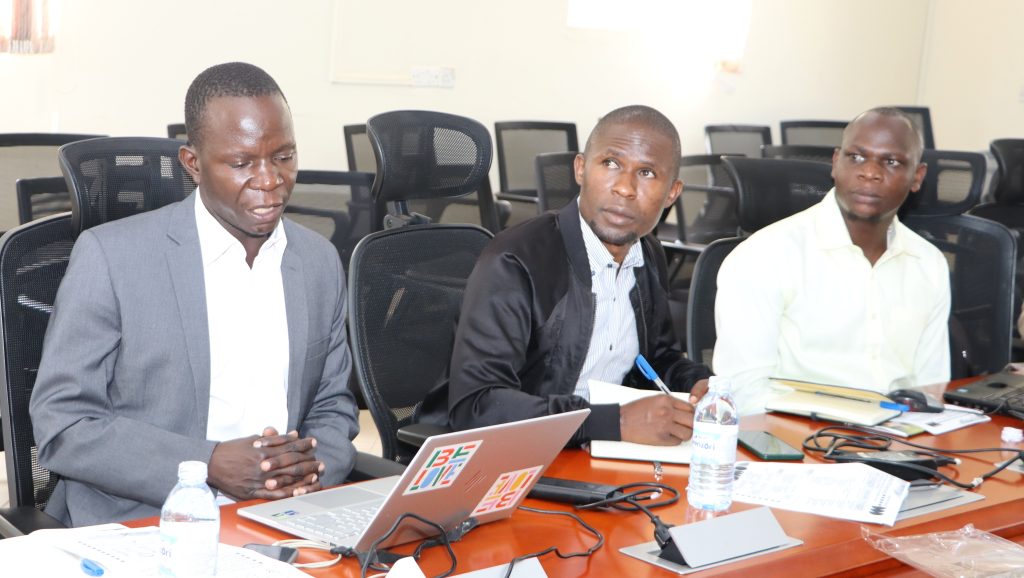
“We have developed common research instruments such as questionnaires and metadata templates,” he noted. “Our data is securely centralized on the Thünen Cloud for easy access and collaboration among team members.”
He announced that fieldwork will continue through the end of 2025, followed by data analysis, publication writing, and stakeholder dissemination workshops in both Kenya and Uganda next year.
“We aim to produce policy briefs, academic papers, and share findings with key actors including the National Land Commission of Kenya and Uganda’s Land Coalition,” he said.
On the international stage, Dr. Kweyu said the project’s Principal Investigators will participate in the 2026 Symposium on Perspectives on Wealth, where they will present findings from East Africa to contribute to global scholarship on wealth and inequality.
“Our ultimate ambition is to promote sustainable land governance — where land acquisitions benefit the wider society rather than a privileged few,” he concluded.
About the workshop
The three-day workshop is designed to strengthen research capacity and collaboration among participants. The first day focuses on developing a common understanding of the project’s key concepts and theoretical frameworks. On the second day, participants take part in a skills lab dedicated to data analysis, scholarly writing, and effective communication of research findings. The third day provides a platform for PhD students to engage in peer-to-peer mentoring, pitch their main research ideas, and identify common themes across their studies.
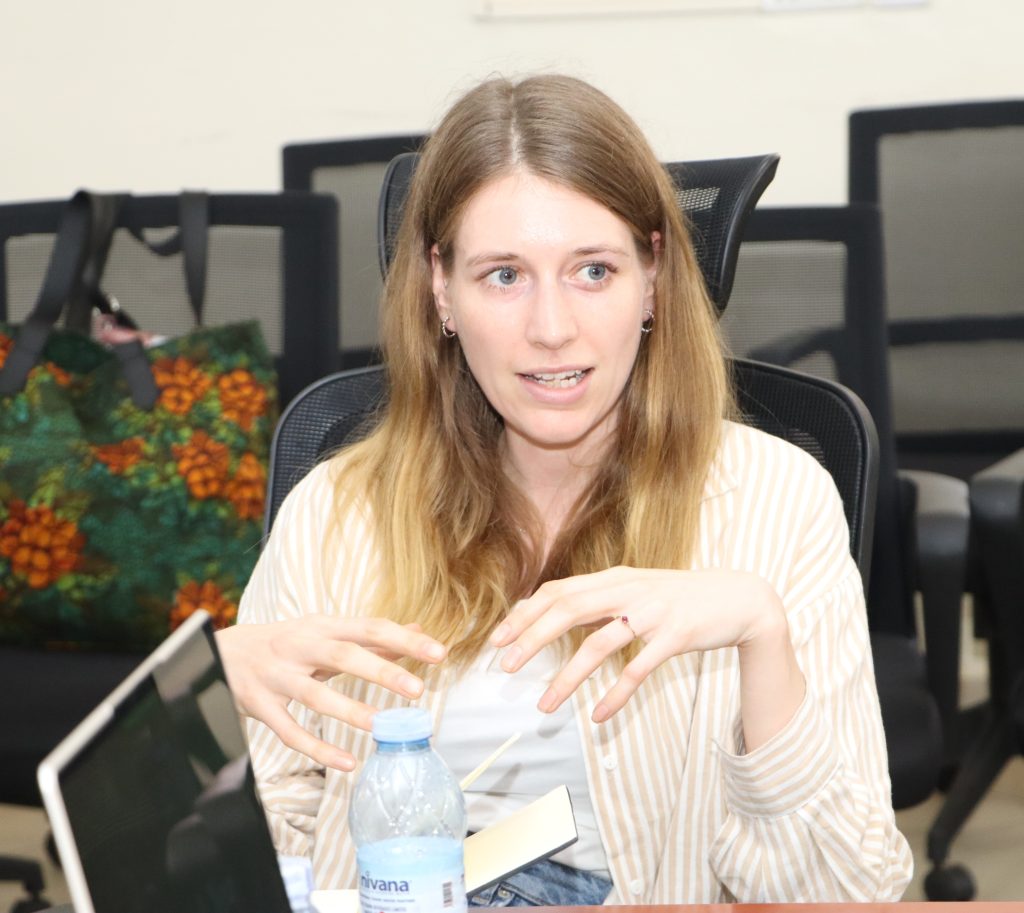
Facilitators for the workshop include Dr. Resty Naiga, Prof. Kerstin Nolte, Dr. Raphael Kweyu, Dr. Kehinde Medase, Anika Muder, Maxwell Sifuna, and Dr. Doreen Nancy Kobusingye, among others.
Over the course of the workshop, participants will explore a range of thematic and methodological issues, including large-scale land acquisitions and land inequality, clarification of key project concepts and terms, research methods, data management, and ethical considerations. Discussions will also focus on the application of artificial intelligence in research, developing causal arguments, working with quantitative datasets, identifying and measuring inequality variables, and conducting literature reviews that effectively link theoretical and conceptual frameworks.
Story by Jane Anyango -Principal Communication Officer, CHUSS
Photo credits: Fred Kanwagi- Journalism and Communication 3rd Year Student

